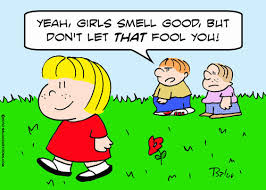Dating Stinks
Studies first performed on mice urine proved that MHC molecules could be detected through the sense of smell, and also showed that mate selection is more prevalent between those with dissimilar MHC molecules (Singer 1997 and Singh 1987). Similar studies were then performed on human subjects to see if the same law of attraction occurred. Claus Wedekind and his colleagues took 121 men and women and asked them to score the pleasantness of the odors of six different t-shirts that individuals of the opposite sex had worn. Their results showed that “pleasantness correlated negatively with the degree of MHC similarity” (Wedekind and Furi 1997). In other words, the greater the differences between the MHC molecules in a male and a female, the greater attraction they felt for one another. This would suggest that already married couples would have dissimilar MHC molecules.

To find out if this was true, a team of researchers led by Raphaelle Chaix analyzed married couples of different ethnicities and the patterns of similarity in their MHC regions as compared to the rest of the genome. The results were interesting—the African American spouses showed no significant pattern, whereas European American couples showed extreme dissimilarity. This study suggests that biological factors are definitely relevant in mate selection, but social factors may influence attraction as well (Chaix et al. 2008).

Another factor that was discovered from the research by Claus Wedekind in the “sweaty t-shirt experiment” was that women taking the contraceptive pill had no significant ability to distinguish between dissimilar and similar MHC molecules. And so he did another study, this time proving that “women’s preferences depend on their hormonal status” because when the women were taking oral contraceptives their own assessment was reversed. In this manner, the contraceptive pill seems “to interfere with natural mate choice” (Wedekind 1995).
So, if you want to find your perfect biological match (or rather your perfect biological opposite), you might want to think twice about dousing yourself in perfume or body spray. You may be ignoring the most natural, or perhaps au naturale, path to true love.
—Faith Sutherlin, Stance
Sources
Chaix, R., et al. (2008). “Is mate choice in humans MHC-dependent?” PLoS Genet 4(9): e1000184.
Singer, A. G., et al. (1997). “Volatile signals of the major histocompatibility complex in male mouse urine.” Proc Natl Acad Sci U S A 94(6): 2210-2214.
Singh, P. B., et al. (1987). “MHC antigens in urine as olfactory recognition cues.” Nature 327 (6118): 161-164.
Wedekind, C. and S. Furi (1997). “Body odour preferences in men and women: do they aim for specific MHC combinations or simply heterozygosity?” Proc Biol Sci 264 (1387): 1471-1479.
Wedekind, C., et al. (1995). “MHC-dependent mate preferences in humans.” Proc Biol Sci 260 (1359): 245-249.
2 thoughts on “Dating Stinks”
You must be logged in to post a comment.
This was insightful! Love it.
Thank you! We appreciate your comment.